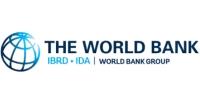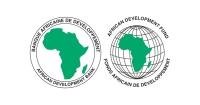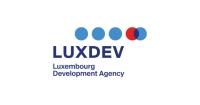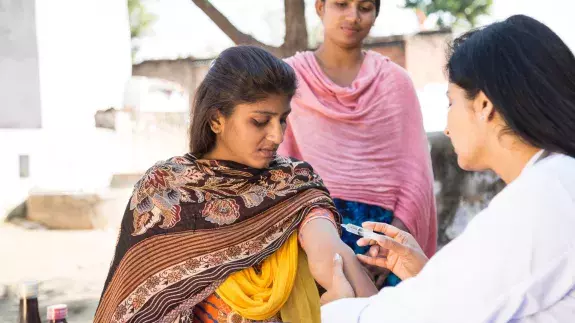Digital health
Digital health is a key lever for transforming healthcare systems and improving access to care in order to move towards universal health coverage (UHC). We support the digitalisation of healthcare services by integrating e-health solutions into our projects, including connected hospitals, vaccination campaigns, telemedicine, health information systems and data management platforms.
Our approach combines technological innovation, interoperability and adaptation to local settings. In collaboration with specialised partners, we help strengthen national capacities, improve the quality of care and support public health policies through high-performance digital tools.
projects
years of experience
Areas of expertise
Our approach to digital health is based on targeted technical assistance to support governance, system interoperability, particularly with DHIS2, and the development and management of health information systems at the national and local levels. We are also involved in the implementation of telemedicine solutions, including the deployment of electronic medical records and digital tools for monitoring and improving the quality of care.
Data governance and interoperability
Health information systems
Telemedicine
Big data and public health data for epidemiological surveillance
Data governance and interoperability
The interoperability of health information systems is essential for the effective and consistent management of care, from the macroeconomic level of government to the micro level of individual medical records.
Effective data governance and interoperability between systems are essential to improving the performance of health services, ranging from strategic planning to individual care.
We support the establishment of robust data governance frameworks and promote the harmonisation of information systems, particularly through integration with platforms such as DHIS2. Our activities strengthen data reliability, its use for decision-making and its circulation between levels of care, in support of health policies and performance-based financing mechanisms.
Our references in digital health
Dedicated teams
Ginger SOFRECO's health division brings together around 15 professionals, each with solid experience in international project management. In addition, we work closely with a network of more than 10,000 experts, including more than 90 specialists dedicated exclusively to digital health.
Since 2024, our commitment to innovation and efficiency has led us to establish a working group specialising in digital health, with a focus on four major strategic areas:
- Data governance and interoperability
- Information systems
- Telemedicine
- Big data and public health data
These themes form the foundation of our digital health development strategy, which aims to transform and improve healthcare systems worldwide through advanced and tailored technological solutions.
colleagues in the field (in-house staff and associated experts)
people


They trust us
Our teams

Dr Chadi Mhedhebi, Project Manager
Chadi Mhedhebi is a trained doctor, specialising in endocrinology, and holds a master's degree in public health and health policy. With four years of clinical experience in hospitals in Tunisia, he has faced the daily challenges of healthcare professionals in a developing country.
In addition, thanks to his more than five years of experience in international technical assistance projects, Chadi has been involved in the implementation of digital health projects in developing countries. For example, he participated in the implementation of the SAHA (Supporting Anti-corruption and Healthcare Administration) project, funded by the US Embassy in Tunisia, which aimed to strengthen governance in the health sector by promoting the digitisation of the pharmaceutical sector. Within Ginger's health division, Chadi is leading a project to develop an AI-based tool for digitising vaccination campaigns.

Chang Yuan
Chang Yuan has over 17 years of experience in the health sector. He holds a master's degree in health services administration from the University of Montreal's School of Public Health and completed an MBA in health marketing and communication at the IAE Paris-Sorbonne Business School.
Chang has worked with renowned institutions such as the World Bank, the African Development Bank, the European Union, Expertise France and the Asian Development Bank. He has led several major initiatives, including the World Bank-funded project entitled "Recruitment of a Technical Assistant to Support the Implementation of the Master Plan for El-Maarouf Hospital and Strengthening the Hospital System in the Comoros." This project places particular emphasis on the integration of a hospital information system. In addition, Chang has served as a consultant for the "Saint Vincent and the Grenadines Strengthening Health System and Resilience Project", where the establishment of a health information system is also a key component.
Challenges and prospects
The Interoperability of Health Information Systems – an essential pillar for consistent medical care
The interoperability of health information systems is a fundamental pillar for ensuring consistency in medical care at all levels, from government agencies to individual medical records. This concept enables the smooth and secure flow of information essential for healthcare decision-making, thereby improving the quality of care, patient safety and the efficiency of healthcare services.
Thanks to interoperability, the Electronic Medical Record (EMR) can interconnect with other auxiliary systems such as laboratories and radiology services, facilitating a smooth and secure exchange of data. Access to the EHR is strictly controlled and customised according to the roles of medical staff, while ensuring the protection of patient confidentiality. Once anonymised, the data is transferred to a national decision-making system for in-depth analysis, contributing to the continuous improvement of public health policies.

Contact us



















